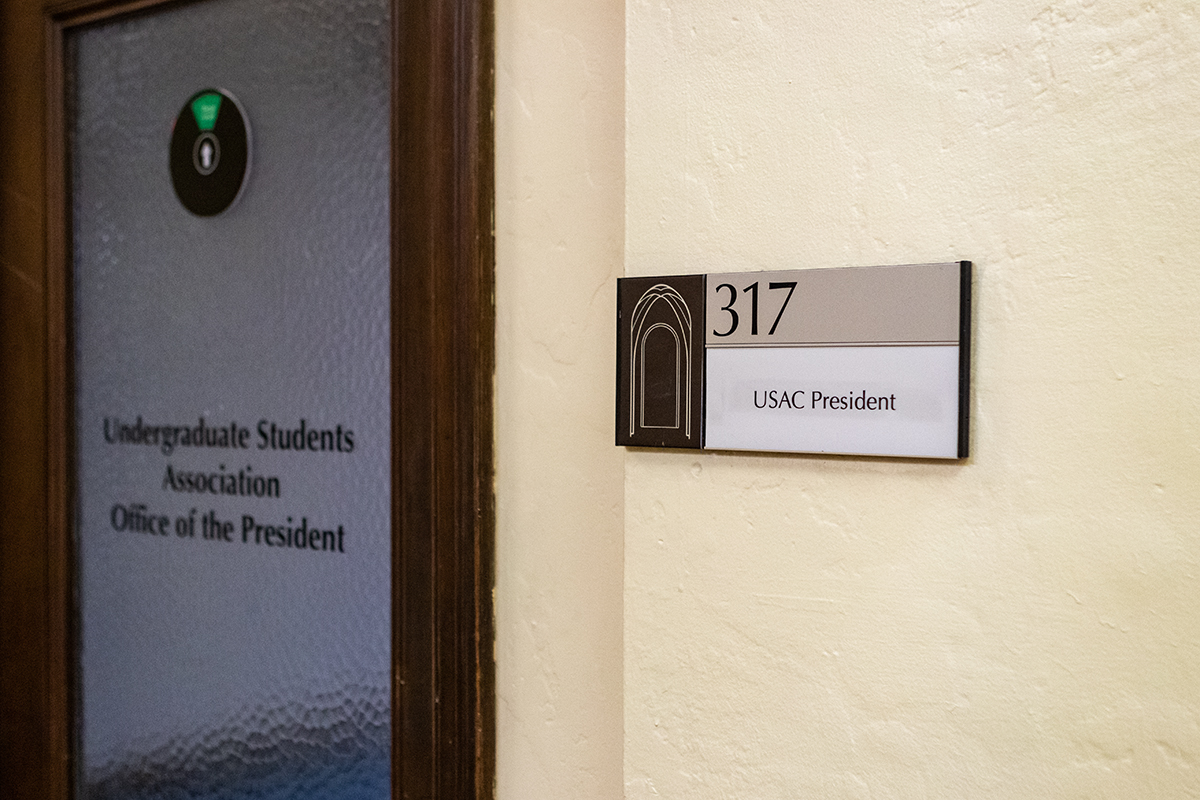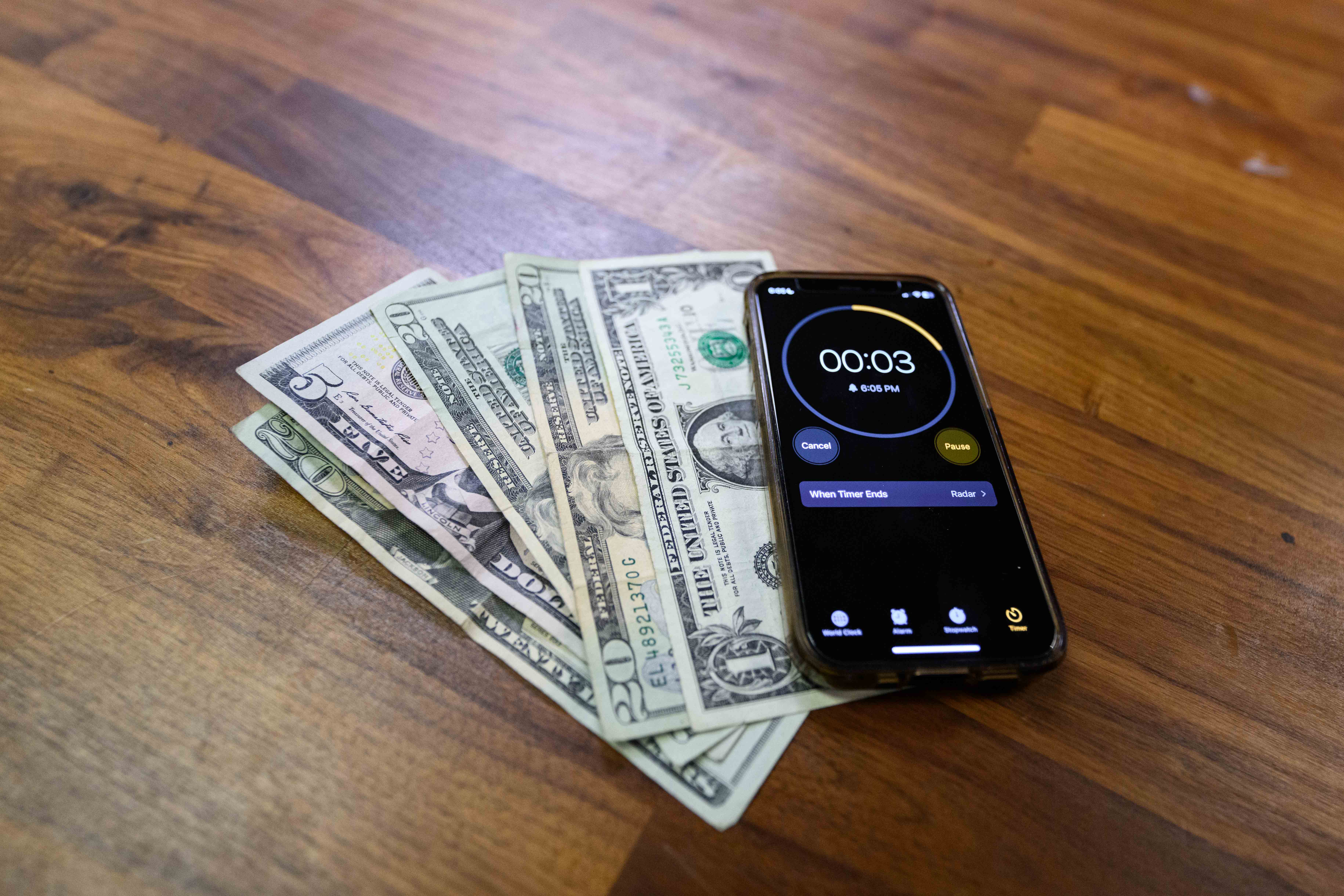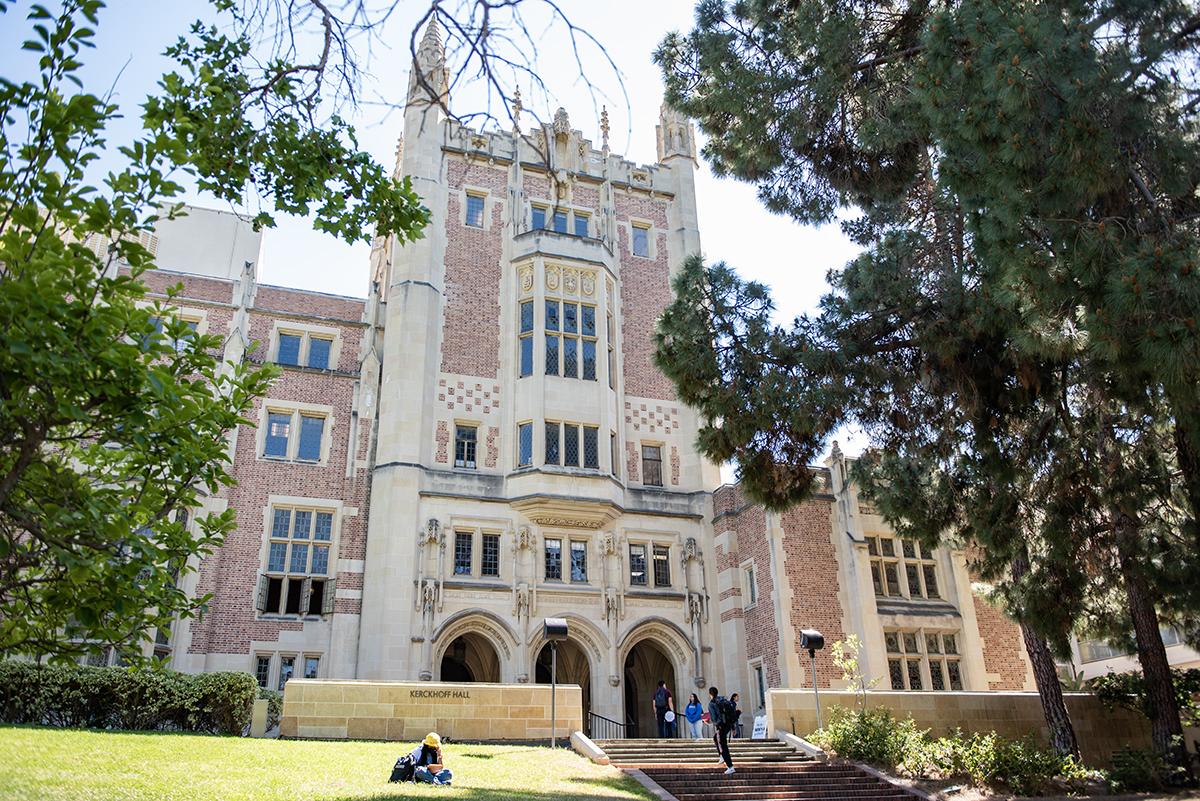USAC president vetoes Lyft funding proposal, cites lack of data transparency
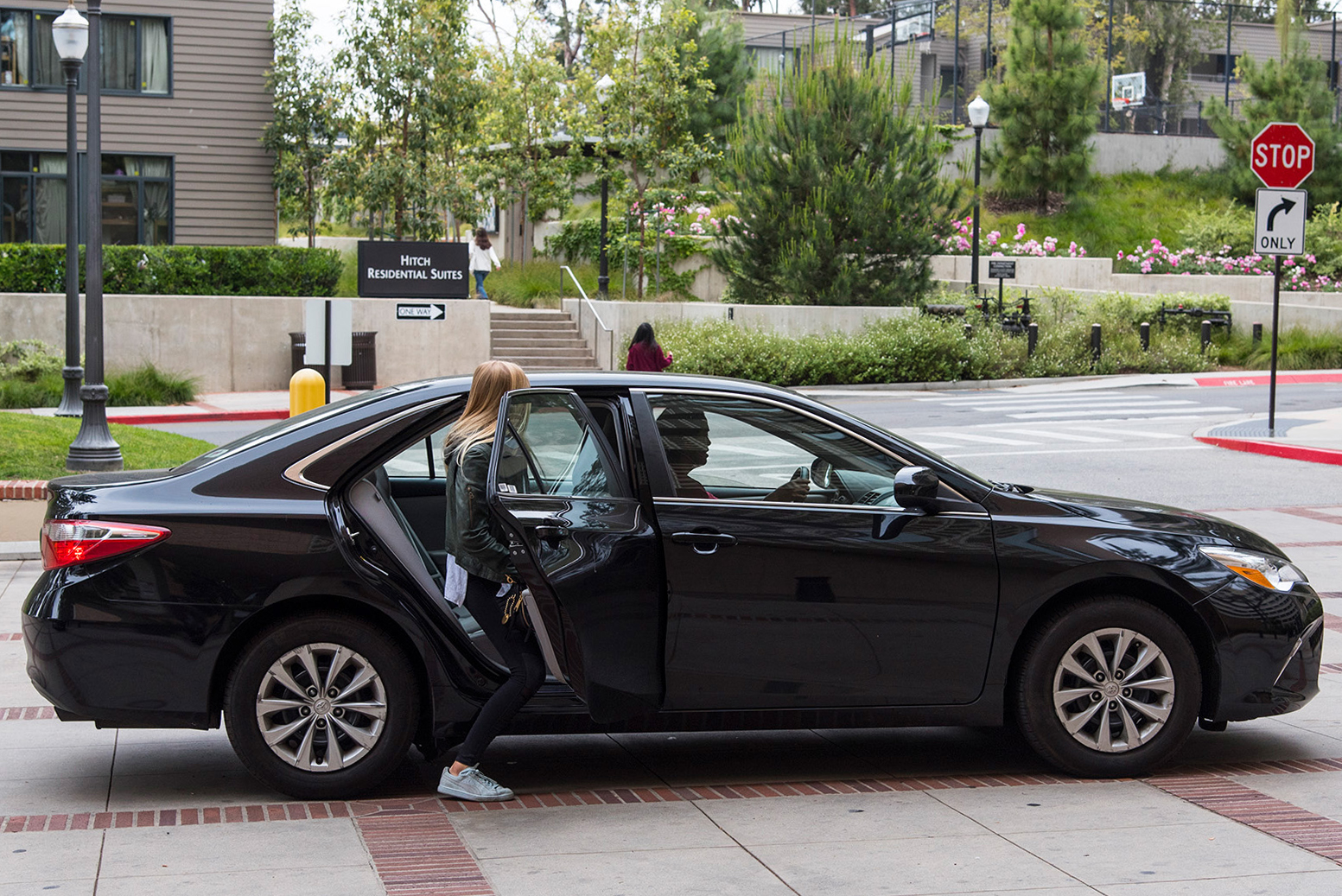
A person gets into a car. The Undergraduate Students Association Council president vetoed a proposal to provide discounted Lyft rides for students after being notified of potentially misleading statistics in the presentation of the plan to the council. (Daily Bruin file photo)
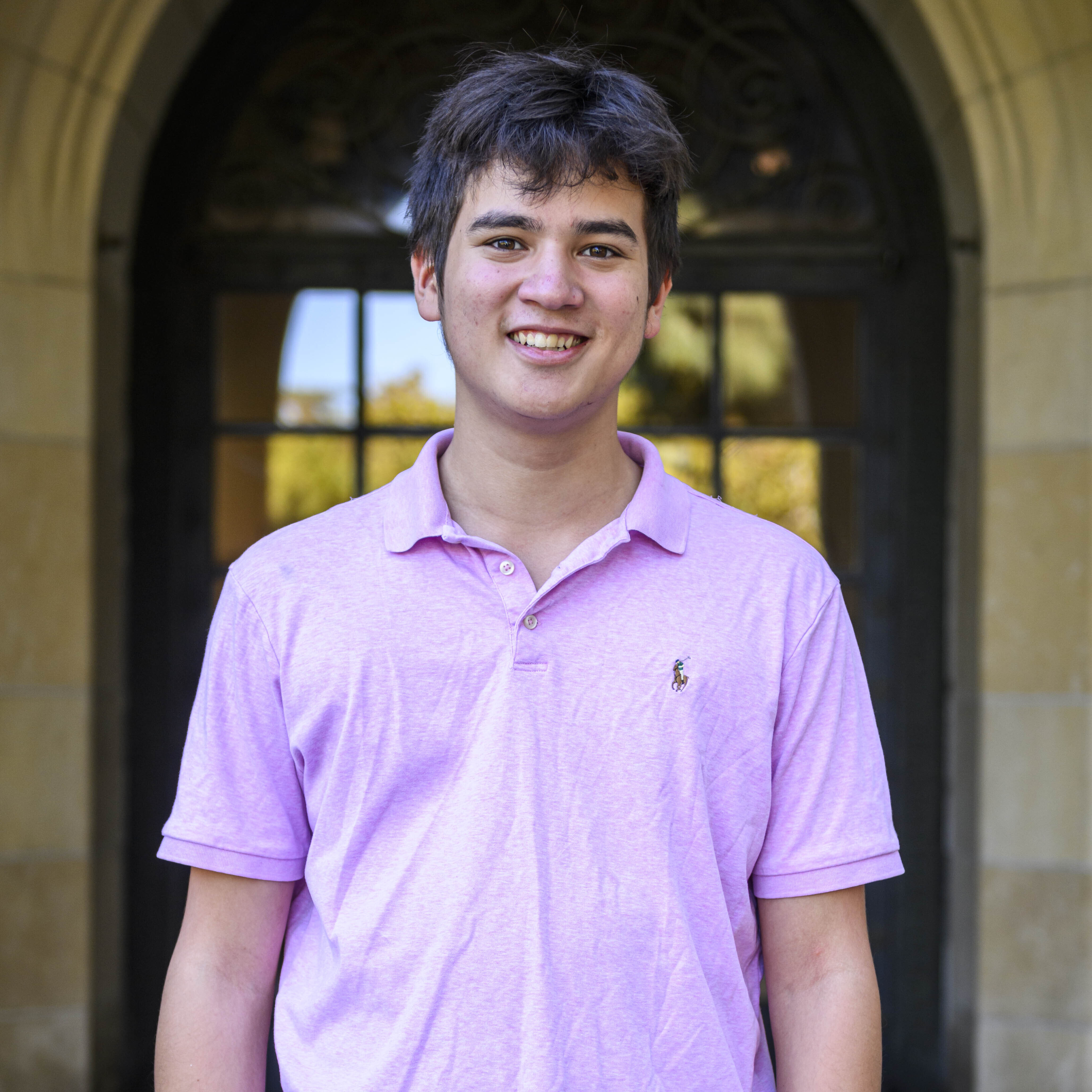
By Dylan Winward
March 14, 2023 11:12 p.m.
This post was updated March 21 at 9:18 p.m.
Undergraduate Students Association Council President Carl King Jr. vetoed a new plan to fund nighttime Lyft rides for students following accusations that the original proposal was misleading.
The proposal, submitted by USAC general representative Kian Kohanteb, would give students four $7 Lyft discount codes a month to provide transportation from off-campus social and academic events, totaling $151,032 from USAC’s surplus budget. The proposal stemmed from a similar three-weekend pilot program run by Kohanteb’s USAC office, he said.
Although the council unanimously passed the proposal Feb. 28, King vetoed the proposal less than a week later.
After King’s veto, the council held further discussions about the proposal and voted against overturning the veto to fund the program, with two members of the council voting to maintain funding for the proposal and five voting against. During the same meeting, King also said that other transportation options on campus may render the proposal less necessary, such as the expansion of Bruin SafeRide.
[RELATED: UCLA Administration announced expansion of Bruin SafeRide]
King, a third-year business economics student, said he used his executive veto power because he felt Kohanteb misled the council by choosing to present statistics about the amount of discount codes claimed rather than rides taken during the pilot program. While Kohanteb’s presentation to the council stated that 182 codes were claimed during the first weekend, he failed to mention that only 60 were used.
King said a constituent messaged him regarding the number of actual riders who used the pilot program, which they found in a transparency report posted to Kohanteb’s USAC Instagram account. This number was not included in Kohanteb’s presentation to the council, King added, despite it being significantly lower than the number of discount codes claimed.
King said that he was concerned the omission of this statistic was a choice made by Kohanteb in an attempt to get the funding he needed for his proposal. He said that bringing this issue to the attention of the council and using the veto was the right way to hold council members accountable for their presentations.
“The brief that he gave council was very detailed, but these are some of the only numbers that he left out,” King said. “I do think that he felt that leaving it out would give him an advantage to get the money that he was asking for.”
However, Kohanteb, a second-year political science student, said he did not intentionally mislead the council, as the statistics regarding codes claimed were only meant to demonstrate interest in the program. He added that more than 300 students signed his statement in support of the program.
“If you put it in your phone, that means you want it (the proposal). At the end of the day, you might not use it, but that means you want it,” he said.
Thyra Cobbs, USAC’s transfer student representative, also expressed concerns regarding the diversity of the pilot program’s users at the March 7 council meeting, adding that she didn’t feel Kohanteb had done enough to ensure the pilot program was made available to minority groups on campus.
King added that he would be seeking increased measures to ensure statistics shared are accurate and transparent in the future when budgetary proposals are presented to the council.
“Going forward, if we do have pilot programs where there’s statistical data, we’re going to need to see verified proof of that data,” he said. “We do need to ask for actual data.”
King also said he was concerned that the program didn’t have enough mechanisms to ensure that only UCLA undergraduate students used it, which is a requirement for programs funded by USAC. The pilot program’s codes could have possibly been used by visitors to the area who got codes from Kohanteb’s Instagram or by students from other schools such as the University of Southern California, he said.
Kohanteb said he had hoped that if the program was passed, students would eventually have to use their official UCLA emails to access the program, though this means UCLA faculty and graduate students could also access the program.
King added that he felt the control mechanism could have been improved for the program if Kohanteb communicated better with either him or his office in advance of the vote. However, Kohanteb said he did not fail to communicate with fellow council members.
Kohanteb also said that he felt that despite the concerns raised, the program should have been implemented by USAC because its potential to benefit Bruins. He added that he was disappointed with the veto because he felt he had answered the questions King had raised in the council meeting.
“I think I showed my points there, and I had answers for his questions,” Kohanteb said. “But at the end of the day, that’s (the veto is) what happened.”
Hansika Nath, the USAC international student representative, said she felt the Lyft program had the potential to be helpful for every student, but especially for international students, whom she felt don’t always have safe alternatives to get back to their housing.
“Most international students do not have cars or private transport of their own,” she said. “People are uncomfortable traveling to unknown areas in public transport to begin with, and obviously, LA as a city is unfamiliar territory to every international student.”
Kohanteb also said although he isn’t planning on proposing the program again to USAC because the surplus funding has already been allocated, he planned to work with the UCLA administration to try to get a different source of funding for the program. He added that safe and affordable transportation was a key part of his campaign platform, and he will continue to pursue funding solutions.
“I still believe that this program is something that students need: a safe, accessible and affordable way to get home,” Kohanteb said. “We are the No. 1 public school in the nation, and if students want this, this is something we should be able to give them.”



